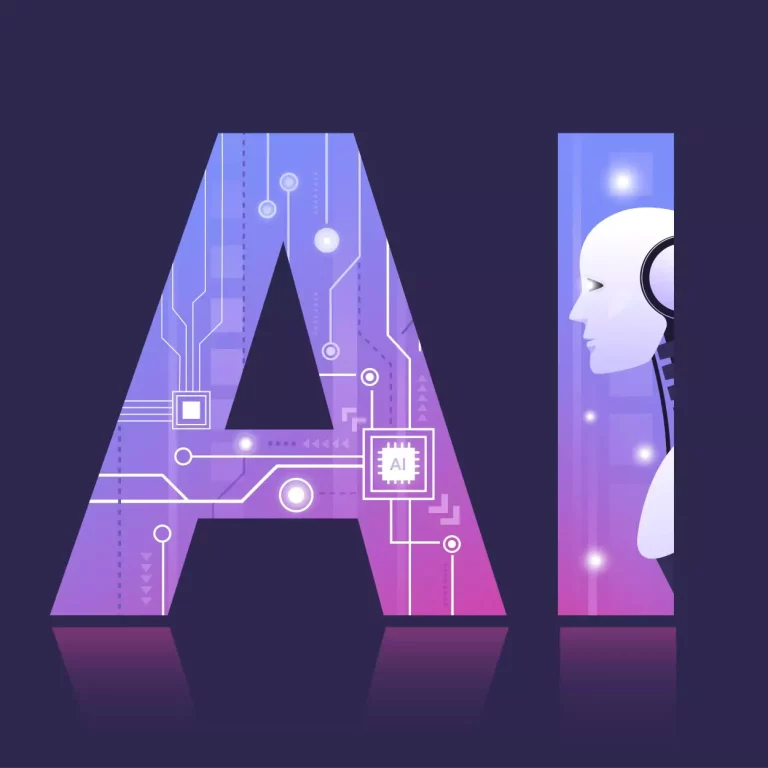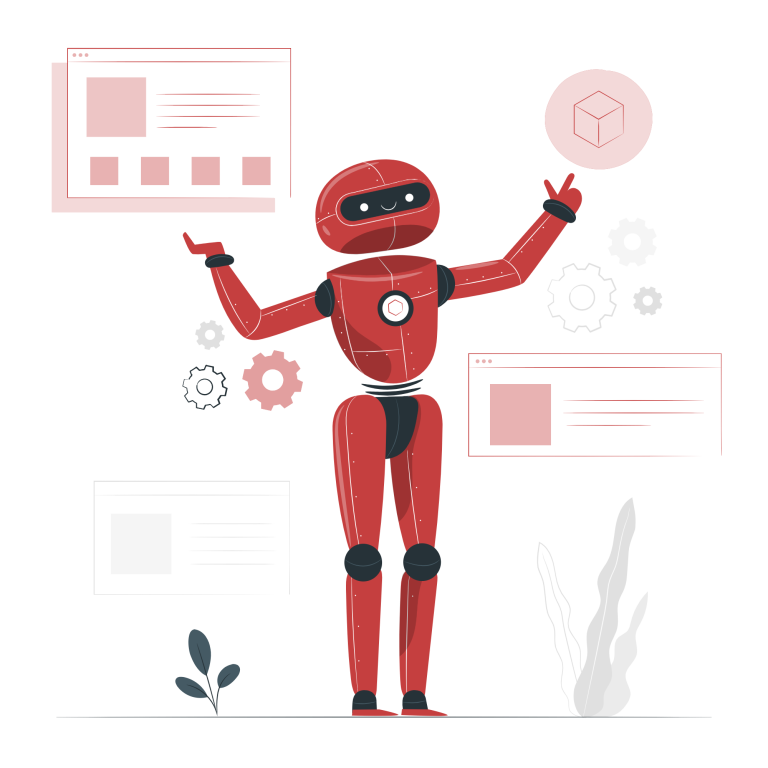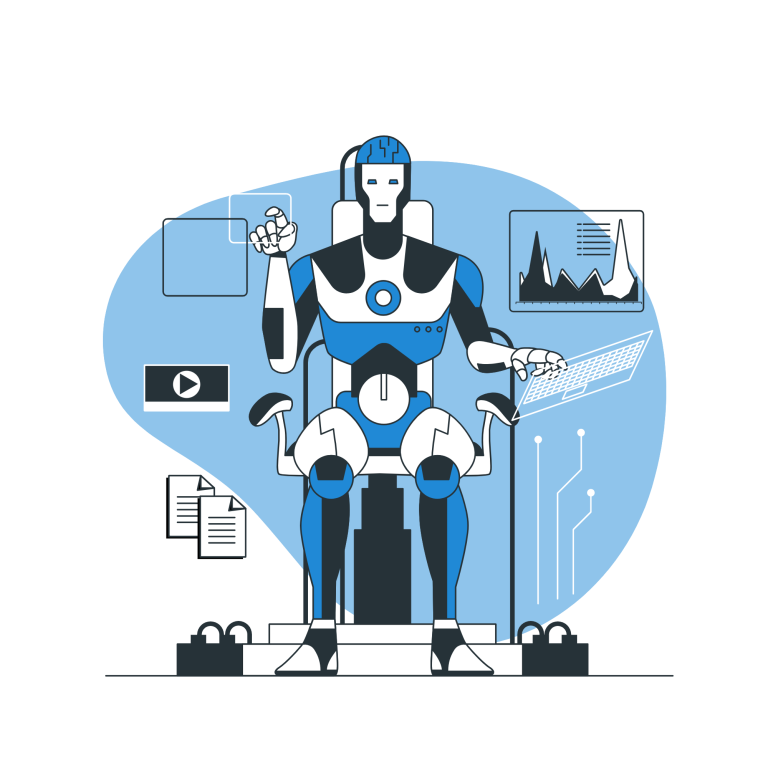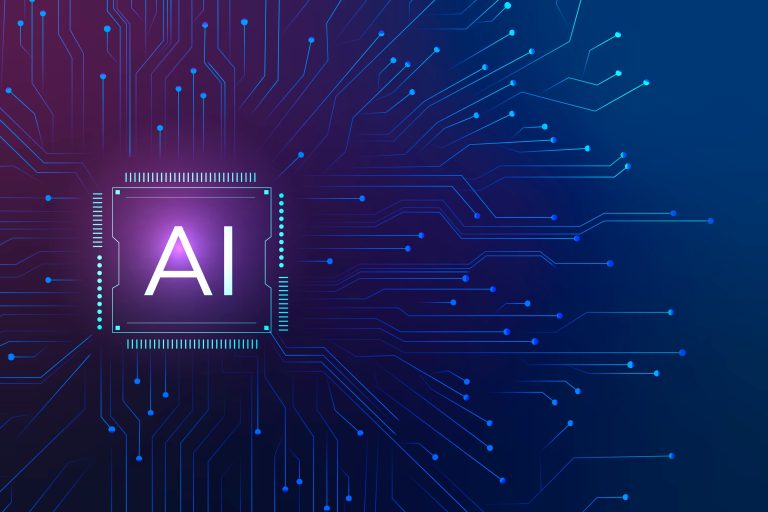Introduction:
Artificial Intelligence (AI) has emerged as a game-changing technology in various fields, and one of the sectors where its impact is particularly profound is healthcare. AI’s ability to analyze vast amounts of data, identify patterns, and make intelligent decisions has revolutionized patient care, medical research, and operational efficiency in healthcare organizations. In this comprehensive blog, we will explore the various applications of AI in healthcare, its benefits, challenges, and the promising future it holds for the industry.
- AI in Diagnostics and Imaging:
- AI-powered diagnostic tools have the potential to significantly improve medical imaging and diagnostics. AI algorithms can analyze medical images such as X-rays, MRIs, and CT scans, assisting radiologists in detecting abnormalities and diagnosing conditions with higher accuracy and efficiency. AI-driven image analysis helps in the early detection of diseases, leading to timely intervention and improved patient outcomes.
- Personalized Treatment and Precision Medicine:
- One of the most significant benefits of AI in healthcare is its ability to analyze individual patient data and provide personalized treatment plans. By processing vast amounts of patient data, including genetic information, medical history, and lifestyle factors, AI can predict a patient’s response to specific treatments and medications. Precision medicine, enabled by AI, tailors therapies to individual patients, resulting in more effective and targeted treatments.
- Drug Discovery and Development:
- The drug discovery process is notoriously time-consuming and expensive. AI has accelerated this process by analyzing vast databases of biological and chemical data to identify potential drug candidates. AI algorithms can predict the efficacy and safety of compounds, expediting the identification of promising drugs and reducing the time from discovery to clinical trials.
- Virtual Health Assistants and Chatbots:
- AI-powered virtual health assistants and chatbots are transforming the way patients access healthcare information and services. These intelligent systems can provide personalized health advice, schedule appointments, answer medical queries, and monitor patients’ health remotely. Virtual health assistants enhance patient engagement and reduce the burden on healthcare providers.
- Administrative and Operational Efficiency:
- AI streamlines administrative tasks and operational processes in healthcare organizations, leading to increased efficiency and cost savings. AI-powered systems can optimize appointment scheduling, billing, and inventory management, freeing up healthcare professionals to focus on patient care.
- Predictive Analytics for Patient Outcomes:
- AI’s predictive analytics capabilities enable healthcare providers to anticipate patient outcomes and potential complications. AI can identify patients at risk of developing certain conditions, such as sepsis or heart failure, by analyzing patient data, allowing for early intervention and preventive measures.
- Enhancing Medical Research:
- AI is revolutionizing medical research by enabling researchers to analyze vast amounts of scientific literature, clinical trials, and genetic data. AI-driven analysis facilitates the identification of potential biomarkers, the discovery of novel treatment approaches, and the advancement of medical knowledge.
Benefits of AI in Healthcare:
- Improved Accuracy and Diagnosis:
- AI’s ability to process vast amounts of data leads to more accurate and early diagnoses, reducing misdiagnosis rates and improving patient outcomes.
- Personalized Treatment Plans:
- AI enables tailored treatment plans based on individual patient data, leading to more effective and targeted therapies.
- Efficiency and Cost Savings:
- AI streamlines administrative and operational processes, leading to cost savings and improved efficiency in healthcare delivery.
- Enhanced Patient Engagement:
- AI-powered virtual health assistants and chatbots enhance patient engagement and accessibility to healthcare services.
- Accelerated Drug Discovery:
- AI expedites the drug discovery process, potentially bringing life-saving medications to market faster.
Challenges and Considerations:
While AI presents promising opportunities in healthcare, it also comes with several challenges that must be addressed:
- Data Privacy and Security:
- AI relies on vast amounts of patient data, raising concerns about data privacy and security. Healthcare organizations must implement robust data protection measures to safeguard patient information.
- Bias and Fairness:
- AI algorithms can inadvertently reflect biases in the data they are trained on, potentially leading to biased medical decisions. Ensuring fairness and transparency in AI systems is critical to avoid such issues.
- Regulation and Ethics:
- The use of AI in healthcare requires careful regulation and ethical considerations to protect patient rights and ensure responsible AI deployment.
- Integration with Existing Systems:
- Integrating AI solutions with existing healthcare systems and workflows can be challenging and requires careful planning and collaboration.
The Future of AI in Healthcare:
The future of AI in healthcare is exceptionally promising, with several key trends shaping its trajectory:
- Advancements in AI Algorithms:
- Continued advancements in AI algorithms, particularly in deep learning and natural language processing, will enhance the capabilities of AI in healthcare.
- Robotics and Surgical Automation:
- AI-powered robotics will play a crucial role in minimally invasive surgeries and precision procedures, improving surgical outcomes and patient recovery.
- Wearable Devices and Remote Monitoring:
- AI will further empower wearable health devices to monitor patients’ vital signs continuously, providing real-time health data to healthcare providers and enabling early detection of health issues.
- Collaboration and Data Sharing:
- Interoperability and data sharing between healthcare institutions will be essential to leverage the full potential of AI in healthcare and foster collaborative research.
Conclusion: AI’s integration into the healthcare industry has already shown tremendous potential in revolutionizing patient care, medical research, and operational efficiency. From improving diagnostics and personalized treatment to accelerating drug discovery and enhancing patient engagement, AI is a transformative force in healthcare. While challenges exist, the ongoing advancements in AI algorithms and the commitment to ethical and responsible AI deployment will drive the healthcare industry toward a future where AI plays an integral role in shaping a healthier world. Embracing AI’s potential while addressing its challenges will pave the way for a more efficient, personalized, and patient-centric healthcare ecosystem.





